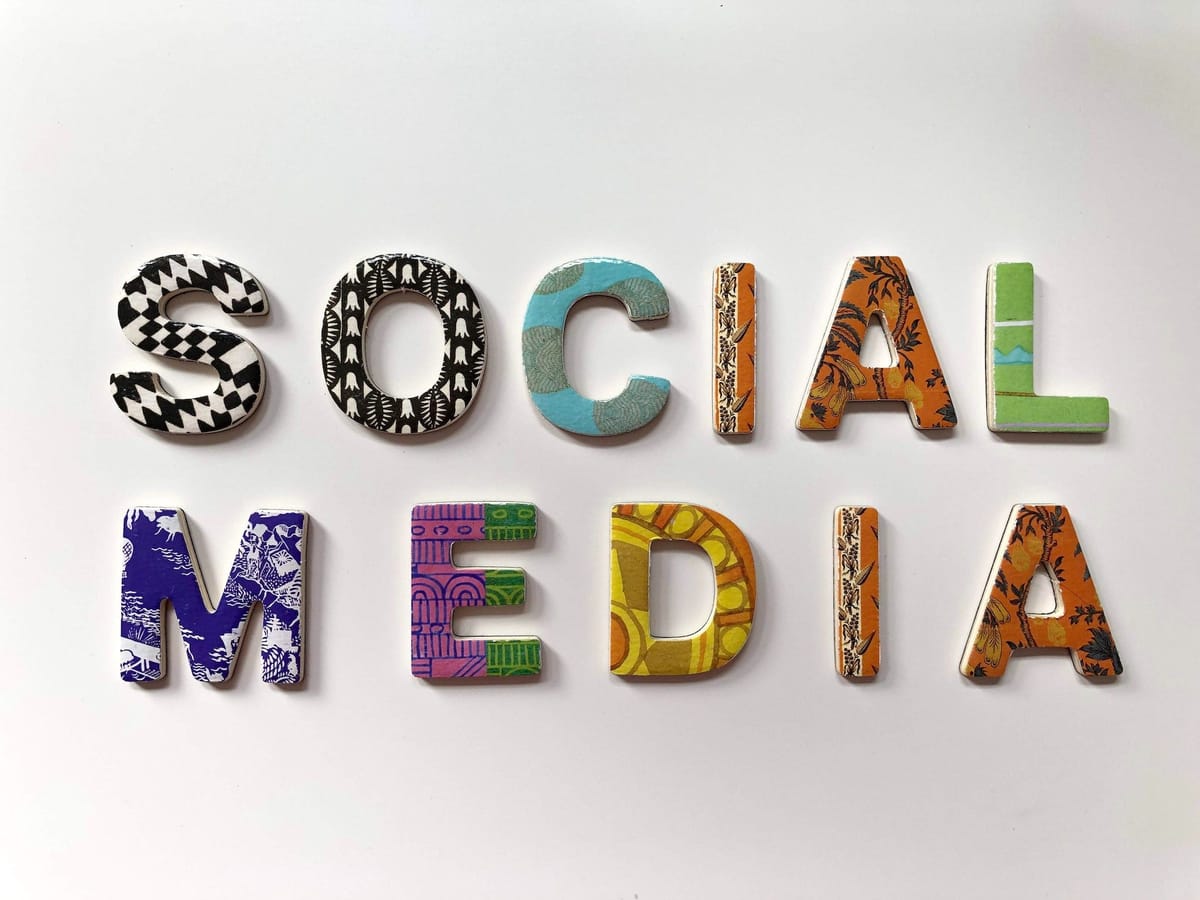The Dictatorship of Happiness on Social Media
The Dictatorship of Happiness on social media is when social media causes us to set such high standards for ourselves, as we see others portray better lifestyles, body shapes, etc, that we become overly...

Social media has become ubiquitous in our lives and everyday interactions with one another. It has numerous benefits but has also created such a comparative despair when everything is out there and exposed to everyone. Some people feel that their lives are not good enough and social media sets standards even for how everyone should look leaving some feeling that their bodies don’t look good enough. This feeling of lack and not being enough is what characterizes the dictatorship of happiness on social media.
What is the Dictatorship of Happiness on Social Media?
The Dictatorship of Happiness on social media is when social media causes us to set such high standards for ourselves, as we see others portray better lifestyles, body shapes, etc, that we become overly disappointed and even depressed when we fail to meet these high and often unattainable standards.
This leads to a feeling of failure, self-disappointment, and often self-hate. It may also lead to depression and even in some extreme cases, suicidal ideation and suicide or even wanting to and undergoing cosmetic surgery and procedures to change how one looks. A good example is when people go for a nose job because they feel that their nose needs to be ‘fixed’ out of what they see on social media and what it dictates a proper nose should look like.
Is the Dictatorship of Happiness on Social Media Real?
Yes. It is very real. For instance, in the decades passed, people would just go visit tourist locations and historical sites with normal cameras to record memories and scenery. However, today people visit these places to take photos for social media platforms such as Instagram where people will even overly visit a popular location just to get an “IG pic” but not necessarily to enjoy the place and what it offers. Some have even died while trying to take the ‘perfect photo’ in locations that are risky such as near cliffs or on railways. An example is railways where restaurants sandwich the railway line and the restaurants and eateries have to shift their tables for the train to pass such as in Hanoi Train Street in Vietnam.
The Idea of the Perfect Photo and the Competition for Perfection
The idea of the perfect photo is an excellent example of the dictatorship of happiness on social media. Before social media existed, you could take whatever photo on your small dumb phone or non-smartphone or on a small camera or polaroid and just do it once. Just the once was enough back then and people didn’t really bother trying to be overly perfectionist and take a ‘perfect photo’. However, when social media came, it created this dictatorship of happiness and perfection where everybody felt that their photos had to be perfect and better than anyone else’s. Social media created the idea of the perfect photo, encouraged users to create such, including by introducing filters, and kicked off this competition of perfection.
The Dictatorship of Happiness on Social Media and Photo Filters
Photo filters came about as a programmatic way of tweaking photos in pursuit of the perfect photo. Psychologically, the creation of filters was saying that most probably your photos aren’t good enough and you need to add an additional layer of light or color to make them perfect. This created a feeling of insufficiency among users about their photos, sending everyone into this mad race to create the perfect photo. In essence, photo filters compounded the dictatorship of happiness on social media by making everyone feel that their photos could be improved and photo filters could be the solution to improve them.
Am I Affected by the Dictatorship of Happiness on Social Media?
More than you know. For instance, if you go to a restaurant and are hungry but when your food comes the first thing you do is snap it or take a photo for social media, then you are one of the victims of the dictatorship of happiness. If you are willing to wait that extra second or minute to take 20 photos when you only need one, then you are quite affected. Why bother to even take a photo of what you are eating, leave alone struggle to take twenty when you only need one? Later, you’ll then delete the 19 photos and share just the one; a waste of time and the warmth of the food for no good reason.
What are the Effects of the Dictatorship of Happiness on Social Media?
Social media generally has some negative effects as we saw in our social media effects article. Even so, in regard to the dictatorship of happiness, social media encourages us to create alternative personalities and lifestyles that we’ll then expose on social media, regardless of whether they are our real lives or fake, to try and be popular and be rewarded with dopamine every time someone likes our photos.
Fake Lifestyle on Social Media
Due to the pressure to be perfect and popular, most social media users will create fake lifestyles and alternative personalities which they will then portray on social media, pretending that that’s their real life, lifestyle, or personality. The sad thing is that by doing this, they end up feeling that their real lives, lifestyles, and personalities are not good enough and this may lead to a lowering of one’s self-esteem, self-hate, depression, and even sometimes suicide.
The Dictatorship of Happiness on Social Media and Dopamine
Social media is designed in a way that triggers a psychological reaction every time we like someone’s photo or our photos are liked. The ‘like button’ itself is a psychological trigger to dopamine, the pleasure chemical in our brains that is released every time we like others’ photos or our photos get liked. Dopamine is itself addictive and when it’s tied to social media or reliant on social media to be produced, then it’s a nightmare. One risks getting overly addicted to social media and spending hours on end on social media and also while trying to create ‘perfect’ photos and videos, as dictated by the dictatorship of happiness that social media has created.
Social Media Addiction as a Direct Result of the Dictatorship of Happiness on Social Media
Social media addiction is a result of how social media is built and the psychological triggers it induces by the use of the like button and such. Social media can therefore become addictive when one becomes reliant on it to produce the pleasure chemical in the brain, dopamine. Similar to a myriad of things, social media addiction is a real addiction and one that needs to be treated through rehabilitation and reducing or managing screen time on our gadgets. Some people have also opted to not engage with social media at all or even smartphones and have gone for dumbphones, feature phones, beepers, burners or keypad phones, similar to those used in the late nineties and early 2000s.
Dumbphones as a Way to Escape the Dictatorship of Happiness on Social Media
Some users of social media and smartphones have opted to replace their smartphones with feature phones or dumbphones as a way to stay away from the dictatorship of happiness on social media. Dumbphones can only make calls or send text messages and do not pop up notifications or create the feeling of wanting to always look at your phone to see whether you have notifications.
The Benefits of Using Dumbphones
Users of dumbphones that have used them as a replacement for smartphones say that it is highly beneficial as they now feel more present in reality and can also concentrate and focus better on their roles and what they are doing. Even more, they report that they feel more entuned with themselves, have more time for self-care and going outdoors to enjoy nature, and generally feel more alive and have higher levels of well-being and wellness. For instance, one may finally get the time to learn some yoga and consistently practice it as a way to increase mindfulness and wellness.
Using dumbphones is also healthy and contributes to one health as one doesn’t spend too much time on screens or sitting there living a sedentary lifestyle without doing much and only scrolling through social media. Some users of dumbphones have even said that they do not want to go back to using smartphones and opt to just be freer with their dumbphones.
The Drawbacks of Using Dumbphones
Some of the drawbacks they say, however, are the lack of some of the features of smartphones such as maps and navigation; so one has to really plan ahead when traveling and learn to read physical or paper maps. Feature phones also can’t scan QR Codes and in some cases such as when in a restaurant, a person without a smartphone may have a hard time purchasing something.
The mitigation for this though is going to a restaurant with someone with a smartphone who will scan the QR code and make an order for both of you. Dumb phones also generally do not have good cameras but that is changing as companies are adding better cameras to their feature phones. The other bottleneck may also be a lack of access to mobile wallets and the ease of purchasing something online via mobile apps and the like. PS: Visit our shop Mania Drip Store for some cool merch. <3
What Can I Do to Avoid being a Victim of the Dictatorship of Happiness on Social Media?
The best way to avoid becoming a victim or to remove yourself from the dictatorship of happiness on social media and its negative effects is to limit your use of social media. A good way to do this is to limit your screen time and create a way to ensure that you respect the limits such as having a schedule requiring you to do something else, like read a book or do chores when your screen time is up.
Most apps and smartphones today will have ways to limit screen time. You can also decide to portray your real life, regardless of whether people will like it or not. Being assertive and showing what you want to show is part of breaking the cycle of perfectionism that is a result of the dictatorship of happiness.
Should I get a Dumbphone and Escape the Dictatorship of Happiness on Social Media?
You may also opt to go for a feature phone or dumb phone such as the Nokia 1100 or Light Phone, and avoid smartphones as a whole. Being exposed to the blue light from smartphones and other screens can be very detrimental to your sleep and mental and physical health also, so moving to a dumbphone could be really good for ensuring that you do not become addicted to social media and also that you do not suffer the health issues brought about by too much screen time.
Will the Dictatorship of Happiness on Social Media End?
Probably not. Social media giants, smartphone app, and smartphone companies will always innovate products that are addictive or sticky to ensure they make money. In the case of social media companies and apps, they will always create products that users cannot resist, in pursuit of selling ads or ensuring that users stay on the platform as long as possible, to be shown as many ads as possible.
Therefore, there is no real motivation for social media companies to end the dictatorship of happiness because of all, it benefits them the most. Are you a victim of the dictatorship of happiness on social media? Let us know by visiting our social media pages: Facebook and Twitter. We disabled comments so you can comment by visiting our social media pages. Chao.




